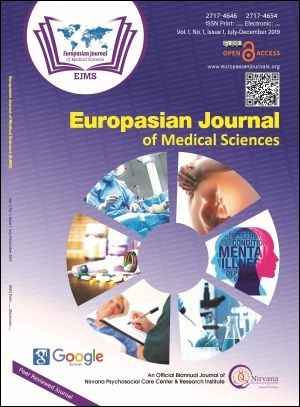Use of Social Media among Intern Doctors in Regards to Covid-19
Keywords:
Authenticity, Coronavirus, COVID-19, Infodemic, Rumor, Social MediaAbstract
Background: The world is not only fighting a pandemic of COVID-19, but also tackling an infodemic due to rampant spread of misinformation and rumor about COVID-19 across various online media. Social media is easy, quick and cost-effective source of information but unfortunately its contents are not regulated. Users usually do not verify information on social media on authentic sites. So, misinformation spreads exponentially. Intern doctors as young medical trainees should have scientific knowledge of disease and not be misled by rumors. Furthermore, health related information shared by medical professionals including interns owes greater credibility for public. This study aims to explore whether or not intern doctors are using social media rationally in regards to COVID-19.
Methods: This is a cross sectional, mixed method study carried out among medical and dental interns of KIST Medical College and Teaching Hospital. Data was collected from 27 Feb-24 March, 2020 with the help of self-administered semi-structured questionnaire and two Focus group discussions conducted on medical and dental interns respectively.
Results: 65% intern doctors most often used social media to gain information about COVID-19 of which 87.1 % mostly used Facebook. Around 46 % just read the full title of news appearing in social media and 36.5 % shared the news just by seeing title. Most of the interns agreed that social media had spread rumor and information about COVID-19 but only 35.3 % intern doctors check its authenticity by verifying it via experts or from authentic sources
Conclusion While intern doctors agreed to the notion that social media spreads rumors and misinformation, the verification rate of news related to COVID-19 on authentic sites is low among themselves. Furthermore, they also share unverified, non-evidence based information on social media, thus contributing to the infodemic. Hence, their use of social media doesn’t seem rational.
Downloads
Downloads
Published
How to Cite
Issue
Section
License
The author(s) retain the ownership of the copyrights for their work published in EJMS without any restrictions. Upon submission, the author(s) grants EJMS a license to publish, including to display, store, copy, and reuse the published content.
License to Publish
By submitting a manuscript to EJMS, the author(s) grant the journal a non-exclusive license to:
- Publish and distribute the content in all formats, media, and platforms (both existing and future), while identifying EJMS as the original publisher.
- Reproduce, display, and store the content in both print and online formats, including institutional and digital repositories.
- Translate, adapt, and summarize the work, including reprints, extracts, and abstracts.
- Develop derivative works based on the original content.
- Include the work in electronic databases and provide links to third-party materials.
Creative Commons Licensing
In addition to EJMS’s publishing rights, authors grant third parties the right to use, share, and distribute their work under the Creative Commons Attribution 4.0 (CC BY 4.0) International License. This allows unrestricted use of the content, provided proper attribution is given to the original author(s) and the journal.

